Meet the 2024 ASBMB Advocacy Training Program delegates
Ten delegates will participate in the American Society for Biochemistry and Molecular Biology’s Advocacy Training Program this summer.
The ATP is a three-month summer externship that provides hands-on science policy and advocacy training and experience. The ASBMB public affairs department oversees the program.
The society has trained 54 ASBMB members in five ATP cohorts, providing the foundational knowledge, skills and tools they need to advocate in their local communities and to national legislators. (Learn more about the experiences and achievements of past ATP delegates.)
This summer’s program will feature sessions across a variety of science policy topics, including the appropriations process and the role the executive branch plays in shaping science policies. Sarina Neote, the ASBMB's public affairs director, said she wants all scientists to participate in science policy and advocacy, not just those who plan to pursue a career on Capitol Hill.
"Training the next generation of scientists to be advocates for science is vital — these are the people who can explain why their research is important and how breakthrough discoveries can improve the lives of every American,” Neote said “Policymakers need to hear directly from scientists and our next Advocacy Training Program cohort will be trained to do exactly that."
The 2024 ATP delegates are:
Elisabeth Marnik
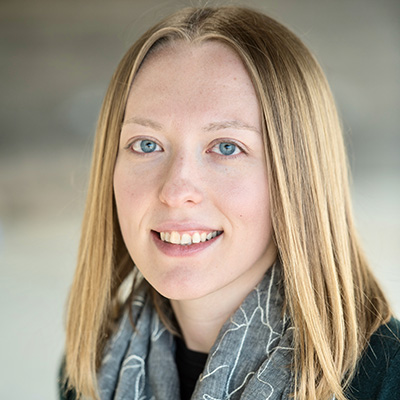
Elisabeth Marnik is the science education and outreach coordinator at the MDI Biological Laboratory in Bar Harbor, Maine. Marnik is also a contributing writer for ASBMB Today, Those Nerdy Girls and the Global Autoimmune Institute. She obtained her Ph.D. in immunology and genetics from Tufts University and completed a postdoctoral fellowship at the MDI Biological Laboratory studying how germ granules help maintain cellular pluripotency in Caenorhabditis elegans.
“The work I have done communicating science to the public is important but has frustrated me at times because more impactful change could happen if there was more investment in scientific literacy from an early age from the ‘top down,’” Marnik said. “However, as a Ph.D.-trained scientist, my understanding of how advocacy and policy work is really limited … So my primary goals with participation in this program are: Gain a better insight into how science advocacy and policy work and determine ways I can use this insight to help advocate for increased investment in scientific research and scientific education and outreach.”
Cheyanne Frosti
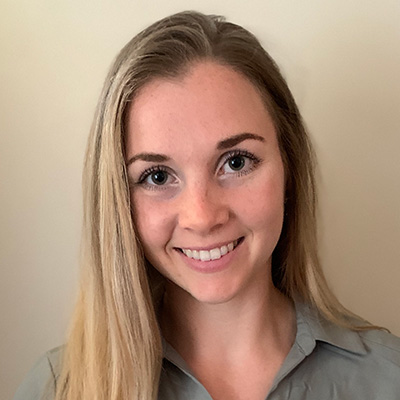
Cheyanne Frosti is a biomedical science graduate student at Boston University School of Medicine. She conducts research with Matthew Layne, an associate professor at BUSM, on extracellular matrix signaling in adipose tissue fibrosis and metabolic disease. Frosti completed a biochemistry undergraduate degree at Loyola University and a master’s degree in kinesiology at the University of Central Florida.
“My goal within the ATP is to chart a path toward a career in science policy, recognizing its profound influence on shaping the trajectory of scientific progress,” Frosti said. “Through interactive sessions and engagement with seasoned professionals, I aim to enhance my communication skills, grasp the ethical considerations inherent in policymaking and develop a strategic approach to navigating the complex landscape of science policy.”
Chidinma Lucy Odili
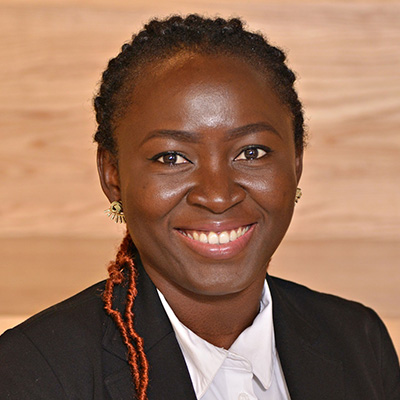
Chidinma Lucy Odili is a recent biochemistry Ph.D. graduate from Auburn University. During her Ph.D., she researched post-translational modifications of methyl coenzyme M reductase. Odili founded the Creativity Beyond Beauty Development Initiative, a nonprofit organization that focuses on female education, mentoring and entrepreneurship in Nigeria. She obtained her undergraduate and master’s degrees in biochemistry from Nnamdi Azikiwe University in Nigeria. Odili also received a Master of Business Administration degree from the University of the People.
“I am particularly enthusiastic about the opportunity to design and spearhead an advocacy initiative that addresses a critical challenge within my research community or addresses broader societal issues linked to the scientific enterprise,” Odili said. “This project will not only allow me to apply the skills and knowledge gained through the ATP but also enable me to make a meaningful contribution to advancing science policy and advocacy in areas of significant need.”
Ecem Arpaci
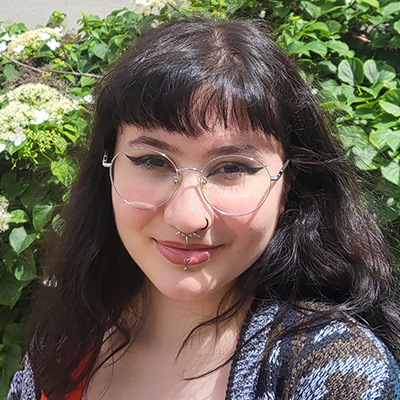
Ecem Arpaci is a biochemistry undergraduate at Imperial College London. She is a student ambassador for the Biochemical Society and a research intern at Radboud University Medical Center. In 2023, she completed the ASBMB Art of Science Communication course.
“I wish to learn how to convince policymakers of the value of research without relying on overly complex or technical terminology,” Arpaci said. “My multicultural and intersectional identity motivates me to focus on promoting diversity and inclusion in BMB research. I would especially like to work on removing barriers for neurodivergent students interested in scientific research who may feel that such a career is inaccessible due to the shortage of representation and stigmatization of disability.”
Betty Du

Betty Du is a graduate student at Stony Brook University. Du performs research with Erwin London, a professor of biochemistry and cell biology at SBU, on fungal plasma membrane lipid raft composition using the model Saccharomyces cerevisiae. In 2023, she won the Department of Microbiology and Immunology Distinguished Service Award in recognition of her extracurricular activities at SBU. Du completed her undergraduate degree in biology at Occidental College.
“I hope to speak with policymakers over the course of the ATP program to gain experience and improve my communication skills,” Du said. “ATP will aid in developing my personal communication skills so that I can lobby in a persuasive and informed manner with state and federal lawmakers about increasing STEM doctoral funding.”
Payel Ganguly

Payel Ganguly is a postdoctoral fellow at Harvard Medical School. Ganguly investigates the mechanism of amyotrophic lateral sclerosis pathology using the model organism Drosophila with David Van Vactor and Spyros Artavanis-Tsakonas, both professors of cell biology at HMS. Ganguly also works as an education fellow in the cell biology department, where she helps develop core curriculum. She received her undergraduate degree in microbiology from St. Xavier's College. Ganguly also earned a master’s degree from the Jawaharlal Nehru Centre for Advanced Scientific Research in Bangalore, India, and a Ph.D. in cell and molecular biology from the University of British Columbia, Canada.
“I want to understand the ethical dimensions of science policy, including issues related to equity, diversity, inclusion and the responsible conduct of research,” Ganguly said. “I will develop skills in policy analysis, understanding the landscape in which policies are formulated, implemented and evaluated.”
Mowaffaq Adam
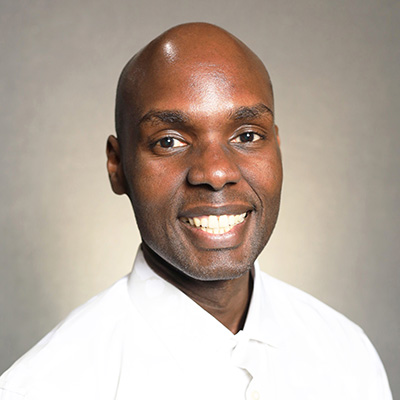
Mowaffaq Adam is a postdoctoral researcher at San Diego State University studying how mutations in isocitrate dehydrogenase 1 affect its enzymatic activity during cancers, including gliomas, chondrosarcomas and acute myeloid leukemia, with Christal Sohl, an associate professor of biochemistry at SDSU. Adam received bachelor’s and master’s degrees from Bangalore University in India. He also earned a Ph.D. in medical oncology from the Universiti Sains Malaysia.
“Joining the Advocacy Training Program represents a pivotal step toward realizing my aspirations of affecting positive change within a vital community, particularly among minority groups and fostering sustainable improvements in public health,” Adam said. “My participation in the Advocacy Training Program is driven by a genuine desire to empower myself with the knowledge and tools needed to be a catalyst for positive social change, to uplift underserved communities and to champion equitable policies that advance the wellbeing of all individuals, regardless of their background or circumstance.”
Brendon Davis
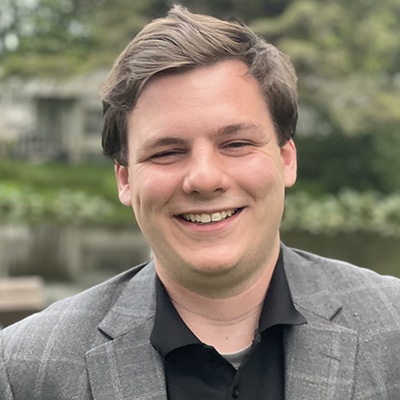
Brendon Davis is a Ph.D. candidate at Johns Hopkins University in the laboratory of Xin Chen, a professor of biology at JHU. Davis studies asymmetric histone inheritance in Drosophila germline stem cells. He also serves as a science policy coordinator for the Johns Hopkins Science Policy and Diplomacy Group, which advocates for evidence-based policies that advance science and safeguard public health. Davis received undergraduate degrees in molecular, cellular and developmental biology as well as mathematics from the University of Washington.
“Living near Washington, D.C., my goal is to gain enough experience to successfully organize Hill Day visits for science initiatives that Johns Hopkins students are passionate about,” Davis said. “With an in-depth knowledge of Congress and the proper communication experience, my final aim is to finish the ATP confident that I can train others in these important skills so I can spread advocacy across my campus and community.”
Sarah Herschede
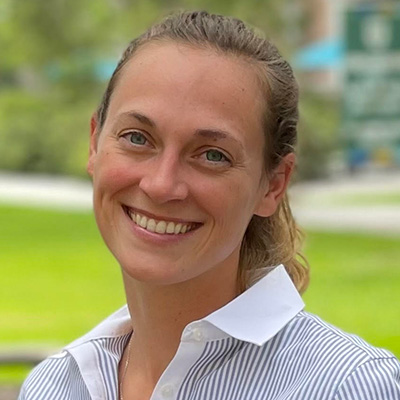
Sarah Herschede is completing her postdoctoral fellowship through the Oak Ridge Institute for Science and Education at the Biomedical Advanced Research and Development Authority, a division of the U.S. Department of Health and Human Services. She manages nerve agent and opioid medical countermeasure projects, ranging from early-stage drug development to phase I clinical trials. She received her undergraduate biology degree from the University of New Orleans and a Ph.D. in supramolecular chemistry from Tulane University.
“As an ATP delegate I hope to gain a better understanding of the inner workings of the federal government and deepen my skills as a scientific communicator to reduce inefficiencies in pharmaceutical development,” Herschede said. “There seems to be a lack of interagency and government–private partnership communication when multiple projects are executed in the same field. … This is a financial burden on the researchers because it limits their ability to partner with pharmaceutical companies. I would like to use this experience to analyze these inefficiencies and improve public health outcomes in America.”
Natalie Reece

Natalie Reece is a medical assistant with Tampa Physician Housecalls as well as a hospice volunteer at AccentCare. Reece graduated from the University of Tampa, Florida, with a bachelor’s degree in biochemistry. She was also recently accepted to the ASBMB Art of Science Communication course and previously worked as an undergraduate research fellow in the laboratory of Ashley Longstreet, an assistant professor of chemistry at UT.
“My goal is to improve community understanding of osteoporosis and communicate relevant information to individuals from a variety of backgrounds, including those with limited knowledge of preventative measures,” Reece said. “If invited to participate in the ATP, I will strive to develop policies that improve communication between physicians and patients and engage with government legislators to increase funding toward the discovery of novel anti-osteoporotic compounds. As a delegate, I hope to gain a thorough understanding of effective advocacy measures for bridging the gap between science and legislation.”
Enjoy reading ASBMB Today?
Become a member to receive the print edition four times a year and the digital edition monthly.
Learn moreGet the latest from ASBMB Today
Enter your email address, and we’ll send you a weekly email with recent articles, interviews and more.
Latest in Policy
Policy highlights or most popular articles

Councilors advocate for science on Capitol Hill
ASBMB Councilors meet with their elected officials to advocate for basic scientific research funding and training the next generation of scientists.

Hope for a cure hangs on research
Amid drastic proposed cuts to biomedical research, rare disease families like Hailey Adkisson’s fight for survival and hope. Without funding, science can’t “catch up” to help the patients who need it most.

Supporting science through advocacy and community building
ASBMB calls on scientists to take action as funding cuts and policy shifts threaten the U.S. research enterprise, emphasizing the power of community advocacy and persistence in protecting the future of science.

Seven steps to advocating in your home state
Find out how to schedule, prepare for and conduct a productive district office meeting to communicate the importance of fundamental scientific research funding to your representatives.
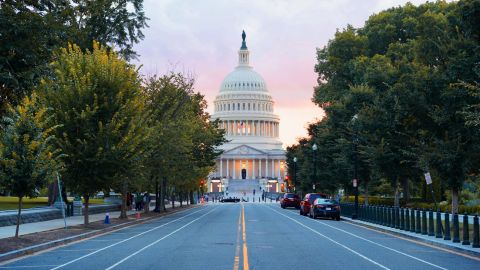
ASBMB members call for funding and agency support amidst uncertainty
In 60 meetings on Capitol Hill, scientists urge legislators to reaffirm support for scientific innovation

Embrace your neurodivergence and flourish in college
This guide offers practical advice on setting yourself up for success — learn how to leverage campus resources, work with professors and embrace your strengths.

